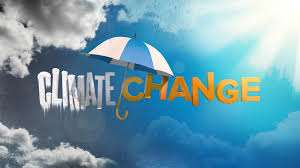
I still cringe when I remember the agony I encountered when I was brought to my knees by the chikungunya virus in late 2014. Almost everyone within my community in South Manchester got a taste of this vicious virus. Sure enough, nearly a year after the outbreak in Jamaica, the mere mention of the term “ChikV” will inspire long harrowing and often times comedic tales from individuals within my community concerning their experiences with the virus.
Incidentally Jamaica was just one of the many Caribbean states that have suffered from the crippling effects of the chikungunya virus. As territories such as Antigua, Trinidad and Tobago, Haiti, Puerto Rico, Grenada and St. Lucia have also suffered at the hands of this virus. Sure enough the outbreak of this virus that forced Jamaica to declare a state of emergency, has caused the Caribbean millions of dollars.
Although the issue of chikungunya, may be deemed “old news” by many, it is incumbent on Caribbean nationals to realize that climate change is currently poised to release an onslaught of viruses as severe as chikungunya and other health issues. The Caribbean region is prone to severe and frequent weather events, such as, hurricanes and storms which are all products of climate change. These unwelcome weather events will, among many other things, continue to; cause increases in water- borne and food- borne diseases, expose Caribbean nationals to the risk of losing their lives, cause serious injuries to individuals, cause interruptions in health care services, promote stomach and intestinal illnesses and mental health issues (PTSD) among individuals affected by hurricanes and storms, and ensure reductions in the availability of water and fresh food. Climate change is also the main cause of droughts within the Caribbean.
In 2014, according to Robert Pickersgill, Jamaica’s Minister of Water, Land, Environment and Climate Change, Jamaica lost 2,190 hectares of crops valued at US$953.3 million because of a widespread drought. Like Jamaica, other Caribbean territories have suffered immensely as a result of droughts and stand to reap a plethora of heath related issues arising from droughts. Studies have shown that droughts are linked to; depression and anxiety stemming from economic losses, stark reductions in clean water and food, increases in temperatures which may cause heat strokes, increases in forest fires which pose a serious threat to public safety, malnutrition, and widespread infectious diseases.
In late 2014, amidst the ‘buzzing’ of mosquitoes intent of spreading the chikungunya virus, Jamaican healthcare officials and Minister of Health, Dr. Fenton Furguson scampered chaotically about trying to find solutions for the outbreak of the aforementioned virus. This inability among our healthcare officials to effectively contain and address the outbreak of the chikungya virus in a timely fashion, has inspired the question, ‘Will Jamaica, and by extension the Caribbean be able to effectively handle future contagious diseases and natural disasters that arise from climate change?’ among many. Like many skeptics, I am of the belief that states, including Jamaica, within the Caribbean region will not be able to effectively fight and address future effects of climate change.
However, if region begins to focus its efforts, in a meaningful manner, on waging a war against climate change by protecting the environment, making the public aware of the causes of climate change and its horrid effects, and implementing policies geared towards combating climate change, it will certainly have a ‘fighting chance’ against dealing with the future effects of climate change.
In addition, it is also of great importance that the region begins undertaking salient health adaptation approaching including, but not limited to; improving public communications and public education before and during the onset of various health issues/ risks, engendering effective emergency response plans and strategies and effectively monitoring emerging health risks.
References
Crossan, A. (2014) Jamaica declares state of emergency to try to stop the spread of the painful chikungunya virus. Retrieved on August 4th, 2015, from www.pri.org
Mendes- Franco, J. (2014) The chikungunya virus brings Jamaica to its knees. Retrieved on August 4th, 2015, from globalvoicesonline.org
Jamaica drought causes nearly US$1 billion in losses (2014) Retrieved on May 18, 2015, from www.telesurtv.net
United States Environmental Protection Agency (2013) Human Health. Retrieved on August 4th, 2015, from www.epa.gov




 Dumsor: Don't rush to demand timetable; the problem may be temporary — Atik Moha...
Dumsor: Don't rush to demand timetable; the problem may be temporary — Atik Moha...
 Space X Starlink’s satellite broadband approved in Ghana — NCA
Space X Starlink’s satellite broadband approved in Ghana — NCA
 2024 election will be decided on the grounds of the economy; choice of running m...
2024 election will be decided on the grounds of the economy; choice of running m...
 Dumsor: We're demanding less; just give us a timetable — Kwesi Pratt to ECG
Dumsor: We're demanding less; just give us a timetable — Kwesi Pratt to ECG
 Do I have to apologise for doing my security work, I won’t – Simon Osei-Mensah r...
Do I have to apologise for doing my security work, I won’t – Simon Osei-Mensah r...
 All my businesses have collapsed under Akufo-Addo — NDC Central regional chair
All my businesses have collapsed under Akufo-Addo — NDC Central regional chair
 Military, Prison Officers clash in Bawku, three injured
Military, Prison Officers clash in Bawku, three injured
 GRA-SML contract: MFWA files RTI request demanding KPMG report
GRA-SML contract: MFWA files RTI request demanding KPMG report
 Court threatens to call second accused to testify if NDC's Ofosu Ampofo fails to...
Court threatens to call second accused to testify if NDC's Ofosu Ampofo fails to...
 Family accuses hospital of medical negligence, extortion in death of 17-year-old...
Family accuses hospital of medical negligence, extortion in death of 17-year-old...
